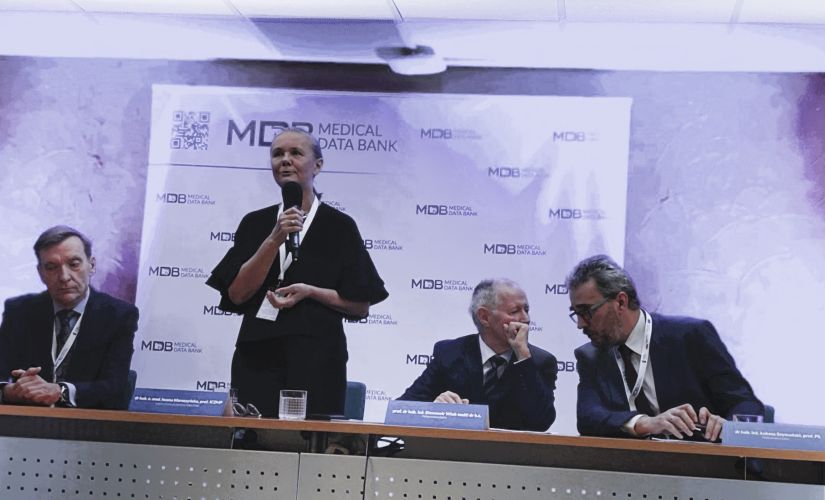Among them was prof. Sławomir Wiak, TUL, during whose term as Rector the contract for funding from the Operational Program Digital Poland was signed and spiritus movens of the scientific initiative that had brought together engineers and medical professionals, as well as the Vice Dean of the Faculty, prof. Łukasz Szymański, the project manager. The ICZMP was represented by its Director dr hab. n. med. Iwona Maroszyńska, prof. of the ICZMP, and her deputy dr hab. Dariusz Trzmielak, prof. of the UŁ.
The MDB-Medical Data Bank project, with a budget exceeding 12 million zloty, has facilitated access to digitized, anonymized, standardized, and meta-described medical data. The bank will serve to facilitate the advancement of oncological diagnosis.
This improvement in medical data collection and storage was made possible by the development of an IT system that allows the collected information to be shared while maintaining an adequate level of security. More than 1,000,000 medical data items were digitized and made available in the course of the project. That fact alone confirms that digital technologies are redefining the standards of the work of specialists, especially medical professionals.
An open access digital database of unique medical data concerning histopathological preparations with descriptions of different cancers was built. Their variety is great, including cervical cancer, endometrial cancer, ovarian cancer, breast cancer, as well as histopathological preparations from endoscopic material collected from the stomach, intestines, skin, and kidneys. The analog data are stored as specimens in the Pathomorphology Clinics.
Following analyses performed by TUL chemists with a variety of chromatographic techniques, a collection containing m/z signals from compounds present in the samples was produced. The resulting spectra are available in pdf format, which allows users to screen the samples for the presence of a biomarker (targeted metabolomics/proteomics) or look for new biomarkers (untargeted metabolomics/proteomics, also known as discovery metabolomics/proteomics).
Who is likely to benefit from the project and find it most relevant? Well, actually, a large and diverse group from the scientific research community, medical institutions, and medical students to IT and consulting firms. Certainly, pathomorphologists, as well as clinicians in other specialties, will take advantage of what has been already achieved.
IT companies have been increasingly more interested in image analysis software. That said, any AI application needs to be trained for the specific strategic goals. A database with full description is readily feedable for machine learning, which means lower costs for IT companies as well as the beneficiaries of this type of solution, and consequently shorter time to implement AI projects, and ultimately increased safety levels for patients. Consulting companies, on the other hand, which are often involved in the development of AI projects for medicine, will have the opportunity to make use of structured and meta-described data.
The web platform developed by the project team makes public sector information on medical data available in a way that is clear and suited to different audiences. The database is available free of charge at https://app.mdb.p.lodz.pl/. Those who avail themselves of it can view and download data without the need to set up an account or provide their personal information.

